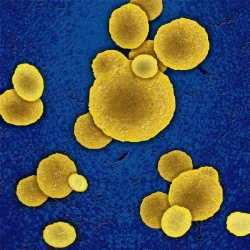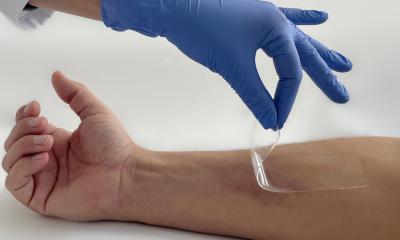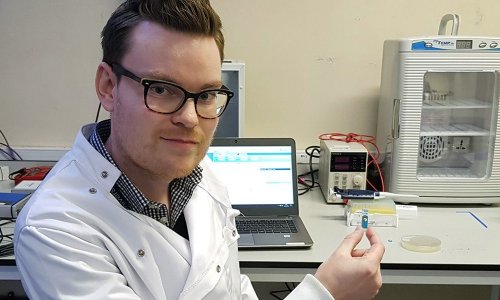New weapons enter the un-ending war against MRSA
A decade ago the battle against hospital-acquired MRSA (methicillin-resistant Staphylococcus aureus bacterial strain) infections appeared to be lost, or at least without end. However, today, we see very important science-to-business achievements in this field.
Report: Rostislav Kuklik

In May, for example, two companies -- Molecular Detection Inc. (MDI), based in Wayne, Pennsylvania, USA, and Launch Diagnostics Ltd, of Longfield, UK -- announced an interesting cooperation. Molecular Detection is developing a qualitative real-time PCR (rt-PCR) in vitro diagnostic assay called Detect-Ready, which helps increase the accuracy, speed, and cost-effectiveness of the direct detection of nasal MRSA infection; Launch Diagnostics is an independent distributor of clinical diagnostic tests and other medical products.
An encouraging aspect of their cooperation is that they signed up an exclusive distribution agreement for MDI's Detect-Ready assay that covers the United Kingdom, Republic of Ireland and France (the assay has been already launched in the UK and Ireland), which is just couple of months after signing off another exclusive distribution agreement with Inverness Medical Germany. This March 2010 contract secures distribution of Detect-Ready in Germany, Austria, and Switzerland (where the kit had also been launched already).
Several things make me happy about this product. Firstly, Detect-Ready kits are compatible with multiple rt-PCR platforms currently in use in clinical laboratories worldwide, including the Roche LightCycler, Qiagen RotorGene and Cepheid SmartCycler, so its usage is just piece of cake.
The assay is supplied as a room temperature-stable, off-the-shelf kit that requires only the addition of patient DNA swab to the premixed reagents in the reaction tube; results are known three hours later. Secondly, the assay kits have received the CE mark certification for sales in the EU, and MDI claims that US regulatory clearance is expected by the end of 2010.
Furthermore, nasal cavities are not the only target in MDI's spotlight. The firm is also developing detection kits to determine the presence of various other pathogens in the bloodstream – among them: MRSA, vancomycin-resistant enterococci, Clostridium difficile, and cytomegalovirus.
The fact that medical professionals are confronted daily with a still truly serious problem is documented by ongoing efforts to identify the main sources of MRSA infection. Recently, Dutch researchers called for more screening of patients who are repeatedly admitted to different hospitals, because MRSA is mainly spread by those frequently moving between various clinical settings. Professor Hajo Grundmann, from Groningen's University Medical Centre, leads a large multinational clinical study focused on a very interesting aspect of community-acquired MRSA infections - their geographic concentration. Thus the idea to follow-up on the geographical location of different MRSA strains in 450 hospitals across 26 European countries arose.
The conclusion was everything but expected, as Prof. Grundmann said: ‚MRSA appears to be spread by patients who ping-pong around between hospitals. These are often frail or elderly people with on-going health problems. The exciting thing is that if we know that MRSA is spread by this core group who are going back and forth between hospitals, we can do something about it and we may ultimately be able to eradicate MRSA.‘
You see? Just hope for the best as we approach the new era of scientific/community methods to win this vexing MRSA war once and for all -- hopefully.
Picture Credit: Aktion Meditech
07.07.2010





